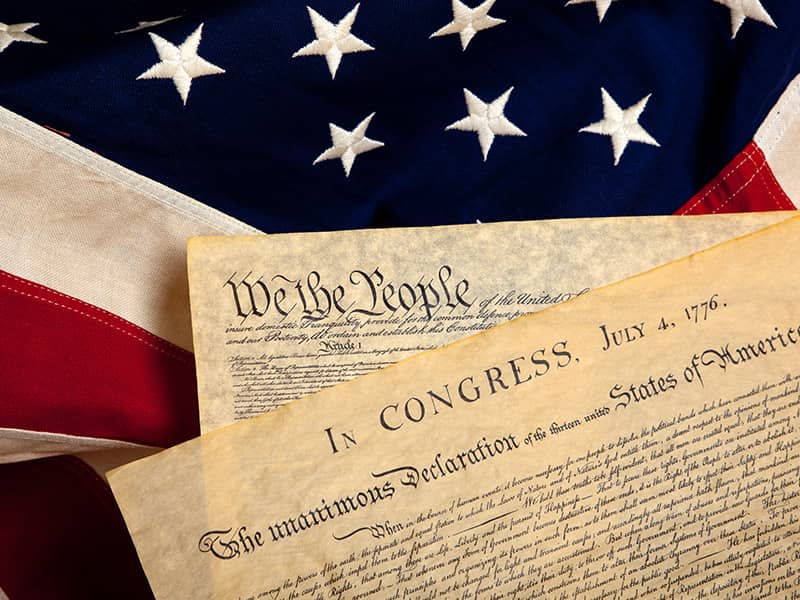Yes, 22% of those who voted listed "moral values" as their number one concern. Putting aside the obvious point that 78% of voters did not view moral values as the number one concern, these kinds of issues were clearly crucially important to the religious conservatives who came out en masse and gave Bush the electoral edge.
But what did they mean? And what did Bush promise?
Let's start with gay marriage, cited by most conservative leaders as the social issue that generated the most concern. Opposition to gay marriage probably played a significant role in Bush's victory, especially in drawing voters to the polls in Ohio, where a referendum against gay marriage passed easily. Advertising in key states clearly highlighted the threat of the gay agenda.
Many of these referenda - and most social conservatives - oppose not only gay "marriage" but civil unions, the providing of legal rights and privileges to gay couples. Yet in the final days of the campaign, Bush pointedly repudiated the Republican platform and said he supported allowing civil unions. In the big sweep of things, that may have been one of the most significant moments of the campaign. When Vermont became the first state to allow civil unions in 2000, they were cast by religious conservatives as radically out of the mainstream. Now the President of the United States, hero of social conservatives, endorses the same thing.
Abortion is also not quite so clear. The Republican Party platform endorsed a constitutional amendment defining human life as beginning at conception, which would require an almost total ban on abortions. Yet Bush never talked about that during the campaign, emphasizing vague words like "culture of life" and his signing of the partial birth abortion ban, which affects less than 1% of abortions.
Social conservatives sometimes refer to partial-birth abortion as the Uncle Tom's Cabin of abortion - the grotesque extreme example that will change public opinion in a profound way, paving the way for a ban. But there's a flaw in the analogy. When Uncle Tom's Cabin came out, abolitionists were quite clear that they urgently and immediately wanted to, well, abolish slavery. Bush has never been clear about that.
Because it was an election year and social conservatives viewed Bush as vastly preferable to Kerry, they never pressed him publicly on this. Truth is, they went the entire first term without demanding all that much from President Bush on abortion. Will that continue or will they interpret their new mandate as meaning it's time to fulfill the full meaning of the Uncle Tom's analogy?
So if this campaign wasn't a case of Bush laying out a specific social agenda and voters ratifying it, why did evangelical voters support him in such large numbers? Religious conservatives have tolerated Bush's vagueness and inconsistency on social issues not only because they view him as far better than the alternative but because of deeper religious and cultural reasons.
First, many believe that God put Bush in office for a reason, a sense that will undoubtedly only grow with his clear re-election. Rank-and-file supporters repeatedly made this point and a series of films and faith biographies that came out during the campaign and flooded churches emphasized that Bush was called to the presidency.
Even more important, Christians feel misunderstood and persecuted and believe Bush's victory and presence in the White House is their vindication. A series of films and books about Bush's faith repeatedly make the point Bush's open discussion of his faith has been mocked by elites. Yet he perseveres in defending himself and, by extension, those who feel held in contempt.
The books and videos also emphasize his faith journey from party boy to good husband and president. People connect with Bush's faith not because of his theology but because his story illustrates the transformative and healing power of faith. In a sense, if Bush hadn't had a drinking problem, he wouldn't be president today. He needed to be lost before he could be found. It was that journey that enabled him to connect to many people who struggle with their own sins or foibles.
They believe in Bush because he rejects moral relativism. Bush's willingness to call terrorists "evil" resonated with them because they believe that mainstream media and culture have lost the ability to distinguish right from wrong.
Finally, the "values voters" who helped keep Bush in Washington believe that God needs to be more present in public life. The 10 commandments in the court room, prayer in school, "under God" in the pledge of allegiance - these are all crucially important issues to many religious conservatives. They believe that we've "kicked out" God from our lives and are suffering the consequences. So when Bush speaks openly about his faith, it's signaling an invitation to bring God back into the public sphere.
In other words, many religious voters love Bush for reasons broader, more vague - and in some ways far more powerful -- than his positions on specific issues like gay marriages. The professional activists, however, have a very concrete agenda in mind - constitutional amendments on gay marriage and abortion, allowing churches to become more politically active, allowing more prayer in school and more.
In the past, Bush has tried to appeal to the rank and file evangelicals through his language and personal story while remaining relatively non-committal on some of the key issues so as to not scare less religious voters.
So now the big question is whether the conservatives activists will let him do that any more.

